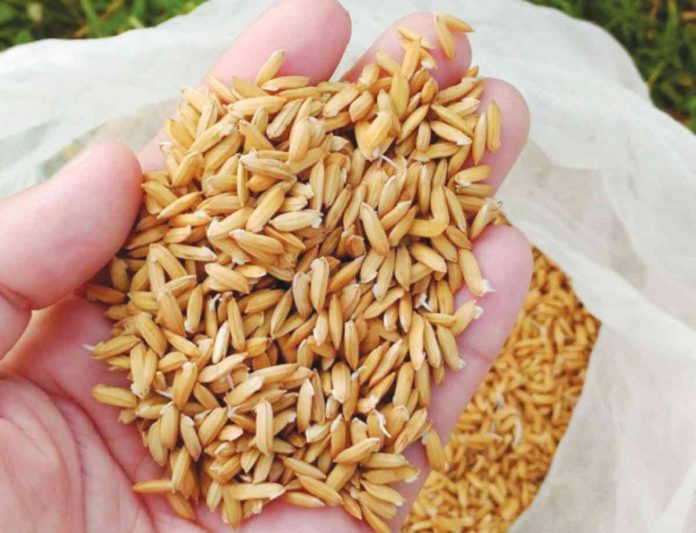
ILOILO City – For this 2023 wet planting season, rice farmers in Western Visayas will be getting 430,196 bags of certified inbred seeds to sustain the increase in palay production and yield.
The distribution of the certified seeds is under the Rice Competitiveness Enhancement Fund (RCEF) Program of the Department of Agriculture (DA) and Philippine Rice Research Institute (PhilRice).
The seed allocation, which targets to benefit 223,156 master-listed rice farmers across the region, will be delivered to 133 local government units (LGUs) beginning in March, according to PhilRice-Negros RCEF Coordinator Engr. Rojen F. Austria.
After two years of being excluded from the RCEF Seed Program, the province of Iloilo has the biggest allocation this wet season, with 166,351 bags of certified inbred seeds, followed by Negros Occidental with 101,216 bags.
Rice farmers from Capiz will also receive 63,391 bags; Antique, 55,735 bags; Aklan, 31,975 bags; and Guimaras, 11,528 bags.
PhilRice increased the target allocation this year by over 30 percent compared to the seed interventions delivered in the 2022 wet season. National and regional seed varieties recommended for propagation in the low to medium-yield areas in the region include NSIC Rc222, NSIC Rc216, NSIC Rc402, PSB Rc10, and NSIC Rc506.
Meanwhile, RCEF Project Management Office director Dr. Flordeliza H. Bordey stressed the necessity of promoting broad utilization of farm machinery, particularly granular applicators, for farmers to adopt the 40 kilograms per hectare recommended seeding rate. She also hoped the DA could tap farm service providers to facilitate drone seeding operations in contiguous rice areas, resulting in reduced production costs and seed requirements.
“We have observed that the farmers’ seeding rate in Western Visayas has significantly decreased. Before the RCEF implementation, farmers used 120 kilograms of seeds per hectare on average, while presently at 80 kilograms per hectare based on the survey the institute conducted,” said Bordey, who advised PhilRice Negros and DA Western Visayas to continue the seed demo activities and boost the campaign for modern farm machine use to further the program’s positive turnout.
PhilRice is currently working on strengthening the organization of seed grower cooperatives by providing them with technical support to meet the target seed yield amid climate factors and to pass the seed certification process. As a result, the 10 seed growers’ cooperatives will be able to amplify their local production sufficient for the RCEF seed requirement of Region 6.
“Seeds sourced from other regions might be a carrier of rice pests. By intensifying the seed production locally, we could prevent the pest incidence in RCEF areas, and at the same time, we could save on logistics,” said Bordey.
Furthermore, the institute will roll out the digital system for seed distribution to recipient farmers in the succeeding planting seasons.
The DA Regional Rice Program and Research Division will embark on massive commercialization of matured rice production technologies conducted here to help local farmers respond to the pressing issues in the rice sector, according to Field Operations Division OIC-Chief Ester Ruth F. Torreverde.
In addition, DA Western Visayas’ OIC Regional Technical Director for Operations and Extension Dominador A. Marquez said that the agency currently monitors and validates over one million farmers listed in the Registry System for Basic Sectors in Agriculture (RSBSA) in Region 6. RSBSA enrollment is a prerequisite for farmers to access various support from the government, including RCEF seeds, machinery, training, and financial subsidy. (DA-6/PN)







